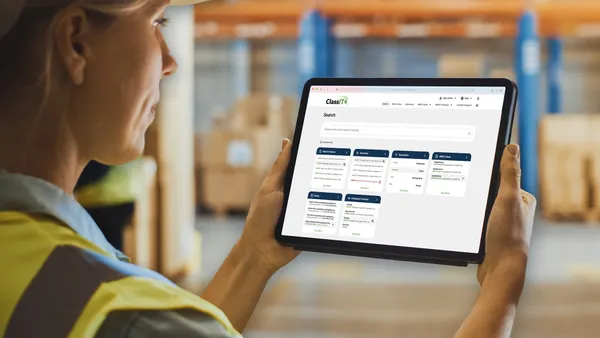Dive Brief:
- Supply chain friction costs — the added expenses that plague inefficient payment practices — culminate in an average of nearly 6,500 lost man hours and an additional £88,725 ($120,612 USD) for companies in the UK, according to Tungsten Network's inaugural Friction Index report.
- The top sources of friction include the continued high usage of paper invoices, an overabundance of non-purchase order based invoices, high volume of supplier inquiries, and lack of automation technology.
- Larger companies are more likely to be impacted by higher friction in their payment practices and therefore will have to devote higher resources to the problem, according to the Friction Index.
Dive Insight:
Automation is getting a bad rap these days, especially with the prediction of robots getting too smart and taking over the world, premade meals getting delivered to your front door by drone, and interstates chock full of autonomous semis delivering no touch loads to lights out distribution centers.
To be sure, there are good things in automation, including automating the payment process in most companies. Most of us are already comfortable with online banking, automatic deposits and withdrawals, as well as texting money to friends and families. A logical extension is continuing to automate the payment process in commercial applications, and the rationale around supply chain friction due to inefficiencies in the invoice payment process is certainly valid.
However, a word of warning to the wholesale approach to any type of mandatory supply chain compliance such as automating invoicing and payments. Having worked for companies over the years that mandated that all suppliers apply for the Malcolm Baldrige National Quality Award, pursue ISO registration, or adopt Lean and Six Sigma, there is a considerable amount of supplier pushback when buyers demand significant and potentially expensive changes, no matter the reasoning behind those decisions.
Larger and more sophisticated suppliers may certainly welcome the opportunity to automate the payment process, driven by the cost savings identified in the Friction Index. Other suppliers, perhaps smaller ones or those located in other countries, may not have the ability or desire to comply, even with a demonstrated benefit.
Everyone has suppliers who resist change at all costs, and even those who still hand write their packing slips and invoices. But they are often critical suppliers, square in the risk profile, and with no alternative available. They can wield incredible leverage.
Those advocating for the automation of mundane processes including invoicing and payment certainly have logic on their side. While the calculation of friction related benefits might be up for discussion, there are indeed savings to be had. But those advocating for wholesale process changes, many outside of the supply chain management function, need to be sensitive to those suppliers who may not be willing or able to comply.














